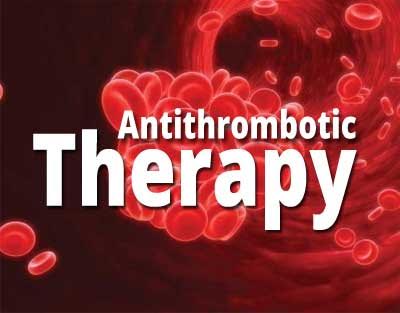- Home
- Editorial
- News
- Practice Guidelines
- Anesthesiology Guidelines
- Cancer Guidelines
- Cardiac Sciences Guidelines
- Critical Care Guidelines
- Dentistry Guidelines
- Dermatology Guidelines
- Diabetes and Endo Guidelines
- Diagnostics Guidelines
- ENT Guidelines
- Featured Practice Guidelines
- Gastroenterology Guidelines
- Geriatrics Guidelines
- Medicine Guidelines
- Nephrology Guidelines
- Neurosciences Guidelines
- Obs and Gynae Guidelines
- Ophthalmology Guidelines
- Orthopaedics Guidelines
- Paediatrics Guidelines
- Psychiatry Guidelines
- Pulmonology Guidelines
- Radiology Guidelines
- Surgery Guidelines
- Urology Guidelines
Antithrombotic therapy in atrial fibrillation-Updated CHEST Guidelines

The American College of Chest Physicians has announced updates to the evidence-based guidelines on antithrombotic therapy for atrial fibrillation. The guidelines have been published in the journal CHEST.
Atrial fibrillation is one of the most common forms of cardiac arrhythmia with an increase in prevalence and incidence with age. In adults over the age of 40, there is a one in four lifetime risk of developing atrial fibrillation.
The updated guidelines reflect the most up-to-date clinical research since the last publication in 2012 according to the Expert Panel.
Key recommendations and shifts from previous guidelines include:
- For patients with atrial fibrillation without valvular heart disease, including those with paroxysmal atrial fibrillation who are at low risk of stroke (eg, CHA2DS2VASc score of 0 in males or 1 in females), we suggest no antithrombotic therapy.
- For patients with a single non-sex CHA2DS2VASc stroke risk factor, we suggest oral anticoagulation rather than no therapy, aspirin or combination therapy with aspirin and clopidogrel.
- For those at high risk of stroke, we recommend oral anticoagulation rather than no therapy, aspirin or combination therapy with aspirin and clopidogrel.
- Where we recommend or suggest in favour of oral anticoagulation, we suggest using a novel oral anticoagulant (NOAC) rather than adjusted-dose vitamin K antagonist therapy. With the latter, it is important to aim for good quality anticoagulation control with a time in therapeutic range (TTR) >70%.
- Attention to modifiable bleeding risk factors should be made at each patient contact, and a HAS-BLED score should be used to assess the risk of bleeding where high-risk patients (>=3) can be identified for earlier review and follow-up visits.
“Understanding the most up-to-date clinical research assists medical professionals in providing the best quality of care for their patients,” says President of the CHEST Foundation Lisa K. Moores, MD, FCCP, and a member of CHEST’s Guidelines Oversight Committee. “It is essential that these guidelines are shared with medical professionals and understood by their patients as well.”
For full guidelines log on to :
DOI: https://doi.org/10.1016/j.chest.2018.07.040
Next Story
NO DATA FOUND

Disclaimer: This site is primarily intended for healthcare professionals. Any content/information on this website does not replace the advice of medical and/or health professionals and should not be construed as medical/diagnostic advice/endorsement or prescription. Use of this site is subject to our terms of use, privacy policy, advertisement policy. © 2020 Minerva Medical Treatment Pvt Ltd